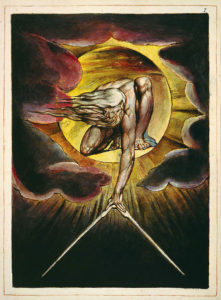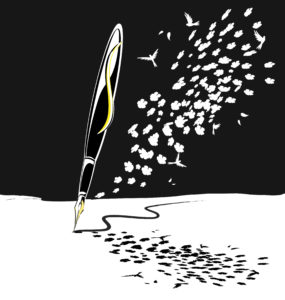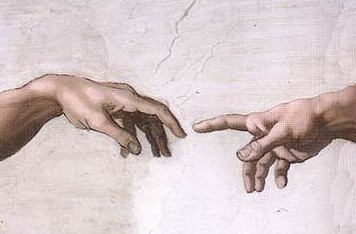 ‘The word became flesh and dwelt among us.’
‘The word became flesh and dwelt among us.’
No, I’m not waxing Biblical on you this lovely spring day. It’s just that I’ve been thinking about the power of the word. Duh! Writer here. When am I not thinking about the power of the written word?
At the moment, I’m still struggling with A Demon’s Tale, the fourth novel in the Medusa Consortium series. Like all the Medusa tales, it’s a big book. In fact what is taking me so long is that almost three quarters of the way through a novel that still needed LOTS more space, I realised that I was trying to write three novels into one. SOOO, I’m now unraveling the three so that A Demon’s Tale will truly be the Guardian’s story. The other two stories are for another time. As I work through this unraveling, occasionally I find myself wondering how we writers can create something out of nothing, from the tiniest seed of an idea. As much as I love a good TV binge, there’s nothing like a good novel – whether you’re reading it or whether you’re writing it. Few things engage the creative process quite like a novel does. In the mind of both the reader and the writer, the word becomes flesh and the world of the story becomes as real as the world we live in … at least if the author has done her job.
The very best novels are the ones that pull us in to the point where the writer’s world seems more real to us than our own, to the point that we physically feel the story, not simply take it into our mind. That’s also true for the writing of a tale. Some days the Guardian’s world seems more real to me than my own, and honestly, if I’m not pulled into the story physically, if I don’t feel it in my gut and below, then I can hardly expect my readers to, can I?
You see, the thing about being a writer is that we’re entirely self-entertaining. The  stories seemingly come out of nowhere, and expand to fill our days, and often our nights and any moment we can spare in our efforts to get them down, in our efforts to create something real. Even when I’m not plopped in front of the computer writing, the story, the characters, the next scene – they’re all going through my head. Some of the best, most creative writing happens when I’m not physically writing at all.
stories seemingly come out of nowhere, and expand to fill our days, and often our nights and any moment we can spare in our efforts to get them down, in our efforts to create something real. Even when I’m not plopped in front of the computer writing, the story, the characters, the next scene – they’re all going through my head. Some of the best, most creative writing happens when I’m not physically writing at all.
If you’ve read the Judeo/Christian creation myth in Genesis, then you know that God simply speaks the world into existence without any seeming order of plan. That’s writing in a nutshell. I have an idea. I shape it enough to anticipate what the ending might be … might be, and then I write and let the story unfold and surprise me.
Eeep! I guess I am waxing a bit Biblical, but you have to understand, there’s a whole lot of mythology going on in the Medusa books, and as a lover of myth, how can I not get pulled in and end up contemplating the connections and meanings?
While a writer brings her world into existence using nothing but words, she has to do a little more than that with the characters. They can be created with words, but they need life breathed into them, they need chemistry, connection, personality, pasts, flaws, feelings, neuroses and a driving force that’s greater than themselves. The world unpopulated is a lonely and boring place. Let’s just say Magda Gardener’s world is anything but. And there comes a point when I’m not entirely sure if I’m breathing life into my characters of if they’re breathing life into me. And like Adam and Eve, my characters, at some point, become autonomous and don’t always do what I want them to do, what I command them to do. What I discovered early on is that the story only truly takes flight and evolves into something alive and powerful and real when my characters leave the Eden I’ve created for them and step out into  the wilderness of flawed humanity. What I am certain of is that my world is brighter, more textured, more three-dimensional because of the characters I’ve created to populate the worlds I’ve written, and especially because they choose free will over my commands. I guess that shouldn’t surprise me, since the stories we writers create are a part of ourselves yet to be discovered and the discovery is absolutely an adventure in creation.
the wilderness of flawed humanity. What I am certain of is that my world is brighter, more textured, more three-dimensional because of the characters I’ve created to populate the worlds I’ve written, and especially because they choose free will over my commands. I guess that shouldn’t surprise me, since the stories we writers create are a part of ourselves yet to be discovered and the discovery is absolutely an adventure in creation.